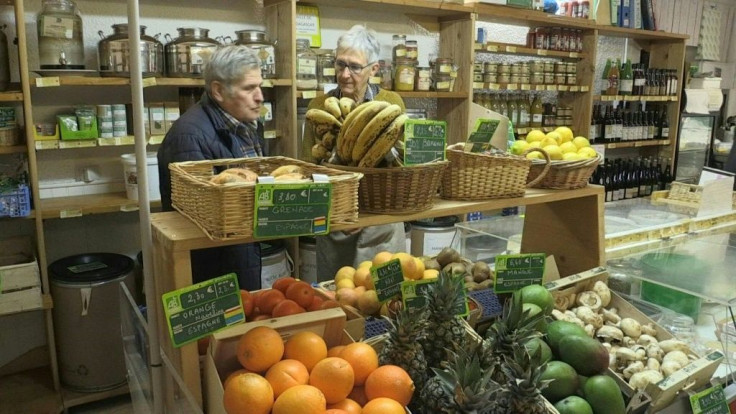Will There Be A Food Shortage? AG Secretary Sonny Perdue Says Supply Not A Problem Despite Coronavirus

KEY POINTS
- The federal government has set up a $3 billion program to buy excess production from farmers to supply food banks
- The closure of restaurants and institutional buyers has reduced demand for farm products
- An expert says the developed world has not really seen any disruption to the food supply chain except for logistical hiccups
Agriculture Secretary Sonny Perdue on Friday said he doesn’t expect a food shortage as a result of the coronavirus pandemic despite the outbreak of cases at meat processing plants across the country.
In an interview on NPR, Perdue also lauded a $3 billion plan to buy excess farm production and distribute it to food banks.
“When you have the shutdown very suddenly of institutional food settings such as restaurants, schools, colleges and others, then that causes a misalignment in supply,” Perdue said. “And we've had to scramble in order to try to readjust that, and this food box program is one of those things which we've tried to do.”
Dairy farmers have been forced to dump milk and crops have been left to rot in fields as a result of the economic shutdown that has reduced demand. Pig farmers have warned they will have to euthanize piglets if processing plants are unable to keep up.
President Trump used the Defense Production Act last week to order 14 meat processing plants to reopen despite hundreds of workers testing positive for and dying from the coronavirus.
Perdue said he does not expect there to be any shortages.
“Essentially all those plants are back open. We've turned the corner, and while some retailers are suggesting they may not have the degree of variety that they once had, we expect that to be cured very quickly,” he said. “I do expect us to be back up to 85-90% production in probably a very few days or weeks.”
Food prices in April, however, registered their biggest increase in more than a half century, increasing, rising 1.5% from March.
The pandemic, which had killed more than 86,700 Americans by midafternoon Friday, has changed consumer food habits.
“While many of us may also have become more health-conscious as a result of this global pandemic, I am sure there is a suitably large number of people worldwide who are now seeking solace in preprepared and carryout food,” said Amir Sharif, associate dean at University of Bradford School of Management.
He said the developed world hasn’t really seen any real disruption in the food supply chain since lockdowns to stem the spread of the virus became the norm.
“The food industry has been ahead of the curve in its management of risk and planning for contingency over many years. It has become a sophisticated and mature operation, learning from mistakes, successes and opportunities to tighten collaboration across multiple countries and jurisdictions,” he said.
Sharif said if problems develop, they’re likely to be logistical in nature, getting food the “last mile” into urban areas.
© Copyright IBTimes 2025. All rights reserved.




















